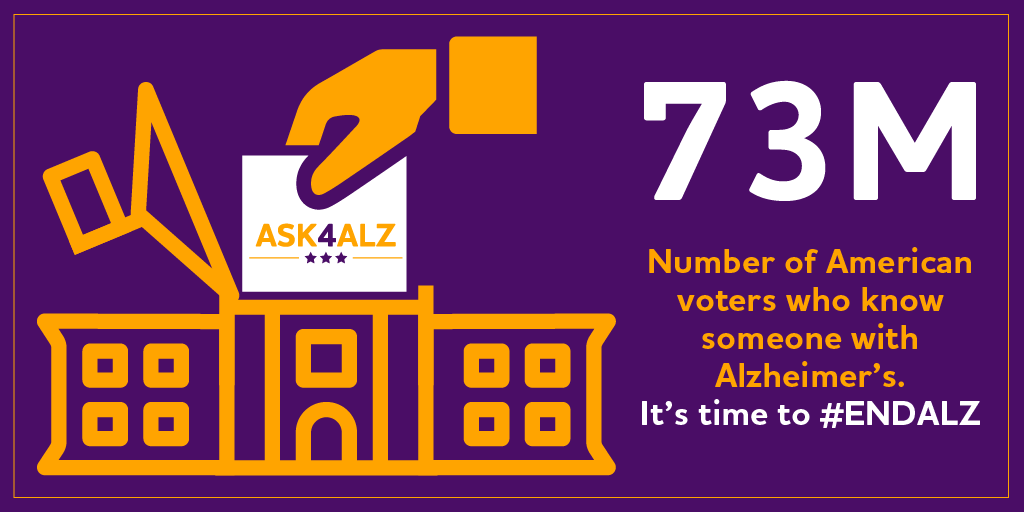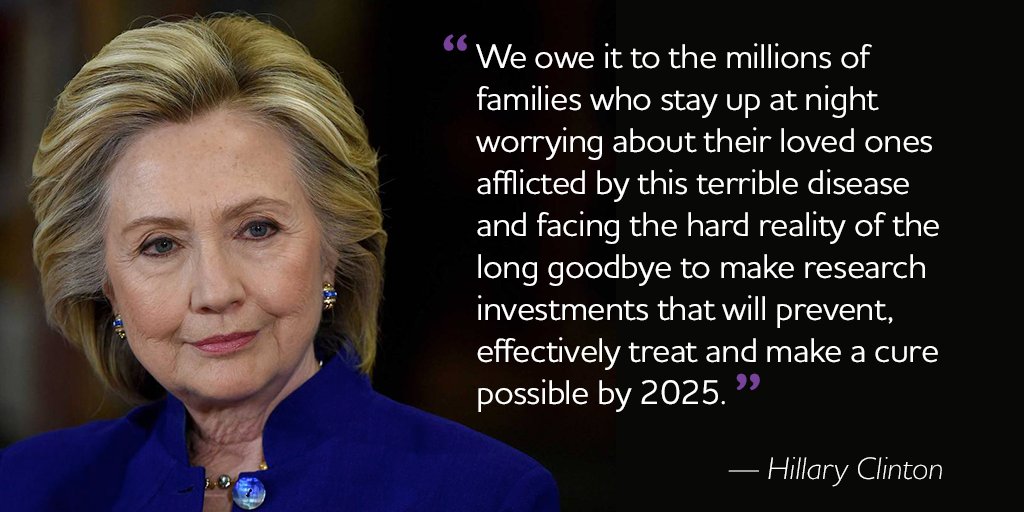Well tonight is the night. After what may have been the longest presidential campaign in our nation's history - and certainly the one with the most twists and turns - we should learn who the 45th President is tonight.
And while this campaign may go down as the most divisive and negative election - we at the Alzheimer's Impact Movement will remember it for something much more positive. We will remember it as the year that Alzheimer's disease became a national priority on the campaign trail.
AIM, along with the Alzheimer's Association led the charge to bring Alzheimer's into the national spotlight, starting with the release of a national voter survey on Alzheimer's disease. Our survey found that 73 million American voters have had a family member or close friend with Alzheimer's disease.
Armed with this knowledge, our advocates hit the campaign trail.
Beginning in 2015 with the primary campaign, Alzheimer's Association and AIM advocates were on the campaign trail engaging each of the candidates of the major parties to press them on their plan to end Alzheimer's. One outstanding advocate, Brenda Bouchard, was honored as the AIM Advocate of the Year at this year's Alzheimer's Association Advocacy Forum for her successful work during the 2015/2016 primary season.

In December 2015, Secretary Clinton became the first presidential candidate to release a plan for addressing the growing Alzheimer's crisis, calling for both increases in federal research funding and support for caregivers. Along with releasing her plan, Sec. Clinton released a video highlighting her plan.

And the Republican nominee Donald Trump also declared in a nationally televised town hall that Alzheimer's would be a top priority of his administration.
Throughout Congressional and Gubernatorial campaigns, Alzheimer's disease and legislation important to those living with the disease and their caregivers remained a focus. David Trone, who ran in the primary for an open Congressional seat in Maryland, released an ad focused onAlzheimer's disease. Senator Blunt made his role in increasing funding at the NIH for Alzheimer's disease a key message of his platform in one of his campaign ads. And former Senator Evan Bayh also included his commitment to Alzheimer's disease in his campaign, sending a petition to his supporters asking them to call on Congress to increase federal research funding.
On July 27, while accepting the Vice Presidential nomination Senator Tim Kaine mentioned those living with Alzheimer's disease in his speech.
We launched a very successful grassroots campaign to get a question about Alzheimer's disease asked in the presidential campaign when AIM advocate Karen Stevenson submitted the question "What's your plan to tackle the large public health crisis: Alzheimer's disease?" to the Open Debate Coalition website. And while ultimately it was not asked, it reached the Top 10 out of nearly 12,000 questions after receiving more than 35,000 votes.
Using the same website, AIM advocate Brenda Bouchard was successful in getting the question into the New Hampshire gubernatorial debate.
And finally, in the final weeks of the campaign, Secretary Clinton released a campaign video focused on her plan for Alzheimer's and featuring Brenda Bouchard.
So after all the votes are cast and counted tonight, regardless of who wins the Presidency and which party controls the House and Senate, all of us in the Alzheimer's community are encouraged by the progress we saw during the 2016 campaign. And we will continue our work for a world without Alzheimer's with the 45th President and the 115th Congress.
Robert Egge is the Chief Public Policy Officer of the Alzheimer's Association and the Executive Director of the Alzheimer's Impact Movement.
